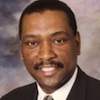01 Jun 2012 Hoodie Rights and Responsibilities, by Charles Butler
 Now that George Zimmerman faces murder charges for the death of Trayvon Martin, it’s time to reflect on things that were said and done in Martin’s defense. Not all of it was necessary or logical.
Now that George Zimmerman faces murder charges for the death of Trayvon Martin, it’s time to reflect on things that were said and done in Martin’s defense. Not all of it was necessary or logical.
Take, for instance, that wearing a hoodie was almost a civil rights issue.
At one point, there was a “Million Hoodie March” in New York City. People posed in hoodies for their Facebook photos. Representative Bobby Rush (D-IL) caused a stir on the floor of the U.S. House of Representatives when he broke decorum by wearing a hoodie.
But it’s hardly akin to segregated lunch counters or slavery.
While a hoodie is a perfectly acceptable piece of clothing on certain occasions, it cannot be disputed that hoodies — like ski masks — are also a symbol of concealment and threat to those acutely familiar with urban America.
And the danger of the person in the hoodie is not reserved to any particular race.
Wearing hoodies to conceal ones’ identities for criminal reasons is a problem for police, shopkeepers and others here, in England and elsewhere around the world.
Googling “ban hoodies” finds many articles about businessmen, school administrators and city mayors who want to ban hoodies because of concerns about public safety.
It cannot be denied that Hollywood and the media have portrayed black men in a negative way. Whether it goes as far back as “Birth of a Nation” or the stereotypical black criminal on today’s television shows, media imagery can create preconceived notions about black America.
It also cannot be ignored that people constantly communicate and judge others through dress, speech and actions as small as a glance or a movement. No matter how pure of heart someone is, they still profile and make uninformed judgments about others all the time. It is human nature.
As someone who has been profiled because of the color of my skin, I understand the embarrassment, anger and anguish people can feel being judged by others. At the same time, I find my own antenna for trouble goes up when I am in an urban area and find myself surrounded by young black men hiding their baby faces behind hoodies.
With hoods pulled up and the pants pulled down, these boys have the look of the drive-by shooter, the armed robber and the perpetrator of other heinous crimes seen nightly on cop shows and newscasts.
It is because of this that I constantly counsel young black men this very important maxim: You are judged by the books you read, the company you keep and how well you speak and dress.
If you wear gangbanger clothing and similarly emulate the gangbangers’ look, how are the police, shopkeepers or individuals to know your real character and true identity?
Over the past 40 years, when I’ve been the victim, I have always demanded to be treated with the respect. I could only demand that respect because of my professional image, the projection and diction of my voice and knowing my rights as a citizen.
Not very long ago, while exiting a train station after dark in downtown Chicago, I saw a young black man scope me out and flip up his hoodie. I quickly searched my pocket for something to defend myself.
Feet away from each other, at the moment of truth, a voice from the still-cloaked figure asked: “Uncle Charles, is that you?” My nephew, scared by my stature, was using his hoodie to project strength and danger. Equally unsure, I almost used a Waterman pen as a weapon on my own kin.
Hoodies are fine. Hoodies are not indicative of race, class or behavior. But those who wear them must understand how some people perceive them. That’s not a sign of racism. It’s a sign of good common sense.
# # #
Charles Butler, is a member of the Project 21 black leadership network, a talk radio host in Chicago and the managing partner of Aricent LLC. Comments may be sent to [email protected].
Published by the National Center for Public Policy Research. Reprints permitted provided source is credited. New Visions Commentaries reflect the views of their author, and not necessarily those of Project 21, other Project 21 members, or the National Center for Public Policy Research, its board or staff.



